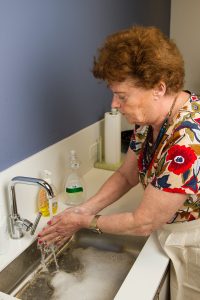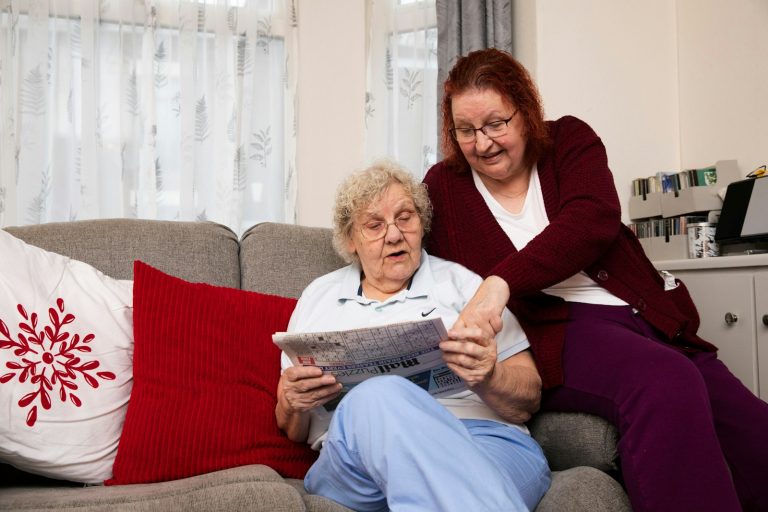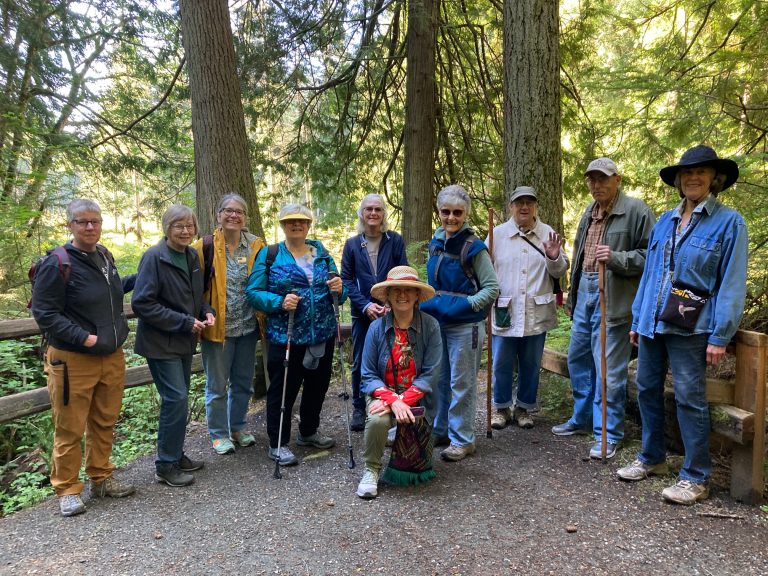Education for Dementia Caregivers is contributed by Carrie McBride of The Alzhemier’s Association.

Education for Dementia Caregivers
There are currently 11 million people in the U.S. caring for a loved one with dementia, including 295,000 unpaid family caregivers here in Washington State.
On average, a person with Alzheimer’s lives four to eight years after a diagnosis, but can live as long as 20 years. While symptoms of the disease are mild in the beginning, individuals become increasingly reliant on others for personal care as the disease progresses. The care provided to people with Alzheimer’s disease or other dementias is wide-ranging and, in some instances, all-encompassing.
The Need of Education for Dementia Caregivers
“Family caregivers aren’t just facing the loss of their loved one’s memory,” says Jerri Wood, community outreach manager for the local Alzheimer’s Association. “There are also many physical, behavioral and emotional changes throughout the course of the disease that can be especially challenging for the family members and friends who love and care for them.”
The Importance of Education for Dementia Caregivers
Research suggests that education for dementia caregivers improves quality of life for both the person living with dementia and their caregivers. The Alzheimer’s Association Washington State Chapter offers over a dozen educational webinars each month to empower caregivers with information, practical tips and resources for the dementia journey.
Webinars being offered regularly include:
Dementia Conversations: Driving, Doctor Visits, Legal & Financial Planning
Learn to have honest and caring conversations about common concerns when someone begins to show signs of dementia.
Effective Communication Strategies for Dementia Caregivers
Learn to decode the verbal and behavioral messages delivered by someone with dementia. Identify strategies to help you connect and communicate at each stage of the disease.
Understanding and Responding to Dementia-Related Behavior
Learn about some of the common triggers for behaviors associated with dementia, how to assess the person’s needs, and how to intervene effectively in this educational training program for non-professional caregivers.
Living with Alzheimer’s: For Caregivers
This three-part series provides answers to common questions that arise in the early, middle and late stages of Alzheimer’s disease. Learn what you need to know, what you need to plan and what you can do at each point along the way.
Learn more about the programs and education for dementia caregivers offered by the Alzheimer’s Association at alzwa.org/education (This is also a link to the monthly education flyer).
Or call their 24/7 Helpline at 1-800-272-3900
Vibrant Senior Options Home





















